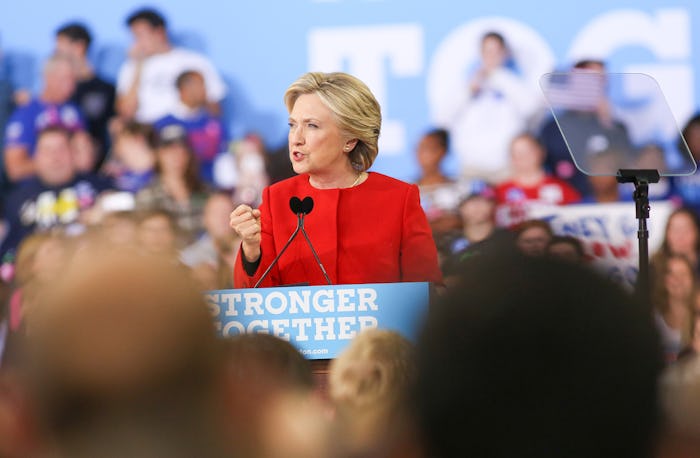News

What Happens If Hillary Clinton Wins The Popular Vote But Not The Electoral Vote?
Election night has unfolded a little differently than most people expected. Before voters headed to polls, The New York Times predicted that there was an 85 percent chance that Democratic candidate Hillary Clinton would win the election. Then, on election night, The New York Times forecasted that Republican nominee Donald Trump had a 95 percent chance of winning the presidency. However, even as polls did a 180-degree shift, Clinton was still expected to win the popular vote. So what happens if Clinton wins the popular vote but not the electoral vote? Could that even happen?
The answer is, "Yes." Because of the way the Electoral College works, Clinton could win the popular vote and still lose the electoral vote, thus losing her shot at the presidency. Even if more American voters cast their ballots for Clinton, electors are won on a winner-takes-all basis, where whoever wins the majority of the votes wins all of the state's electors (making them either all Republican or all Democrat). So Clinton could lose by 1 percent in several states while winning by 40 percent in others, but the winner-takes-all system wouldn't reflect that margin, and Trump could still win more electors.
The electors then go on to vote in the Electoral College, and whoever snags 270 electoral votes becomes president. So technically, depending on which states a candidate wins (considering each state has a different number of electors), they can win more electoral votes — even if, across the entire country, another candidate has received a higher number of votes overall.
So, hypothetically, if Clinton won the popular vote but lost the electoral vote, what would happen? First, Trump would become the projected winner. Then, after the Electoral College cast their votes on Dec. 19, Trump would presumably win at least 270 electoral votes and be announced president.
If this all sounds crazy, remember — it wouldn't be the first time this has happened. In fact, it would be the fourth. You may remember that in 2000, Democratic nominee Al Gore won the popular vote, but lost by four electoral votes to Republican candidate George W. Bush. (Understandably, both Gore and his supporters were not too pleased by this outcome.)
In most elections, the popular vote matches with the electoral vote, but there's no guarantee that that actually happens. And if it doesn't, the electoral vote still takes precedence over the popular vote, meaning that if Clinton lost the electoral vote, she wouldn't be making it to the White House.